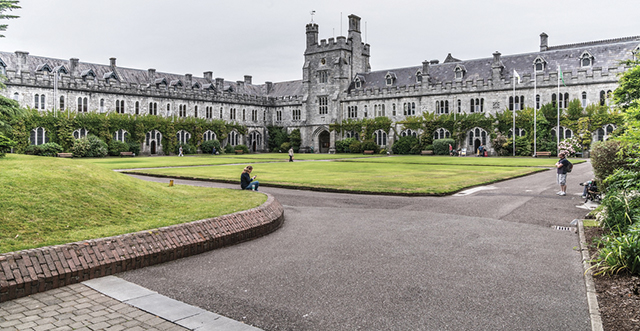
Irish students have higher levels of stress than other developed countries around exam time. 84.4% of students have faced some form of overall anxiety and 40% of students have faced direct exam anxiety. As the end of semester looms over us we may begin to feel more pressure. The time has flown by fast. Looking at our powerpoints, notes, readings, instructions, guides and exam registry, it’s easy to get overwhelmed.
Dr Brendan Egan, Associate Professor of Sport and Exercise Physiology and Head of School for Health and Human Performance in DCU has ruled out some ways students can balance academics and wellness around exam time.
Starting with a discussion about habits, Dr Egan mentioned how habit formation and retention is a key foundation for exams. Habits we form around these stressful times can follow us into later life. Things like planning, scheduling, and a consistent routine can help to keep on track.
There are links between academic achievement and good habits. A lack of these can be associated with negative performance. During stressful study periods it is important to invest in our wellness so our academic health can benefit.
Things such as a better quality diet and more physical exercise can help with better mood and concentration. Sticking to a better meal routine and avoiding high sugar beverages is key. He suggested more protein and vitamin D while making allowances for social situations for balance.
When asked about caffeine, he mentioned intaking caffeine especially around exam season means you are more likely to end up in a “vicious cycle”, where you become dependent on an energy boost which in turn affects your sleep meaning more caffeine is needed. This may have long term effects as you may be dependent even after the exam period ends.
Recommending energy drinks for athletes but that students stick to two-three cups of coffee a day or the equivalent of 200-400 MG of caffeine. The issue described by Dr Egan was that energy drinks such as Monster contain this in just one can. He would then quote Oscar Wilde saying, “Everything in moderation-including moderation.”
According to the UNC Learning Centre students need 7-9 hours of sleep. So, limiting our caffeine intake during exams is recommended while still making “acute, single” allowances. Otherwise it could have “knock-on effects.”
In order to balance academic health and wellness, exercise is also seen as important by Dr Egan.
A lack of exercise topped with caffeine and bad food will concentrate into poor performance in university work. It is noted that picking an exercise you like doing is important to ensure consistency but he warns that if you don’t already exercise do not introduce anything new around exams and that a “small amount will benefit.”
This means a 10-20 minute walk a day to clear the head for exams and get blood flowing. Or for those who don’t have time or prefer it, an hour a week of medium-high intensity exercise also works.
He recommends exercising later in the day to aid sleeping later rather than first thing in the morning as it may leave us restless.
The most important key idea for balance however was that “people should have a routine seperate to exams…like anchors.”



